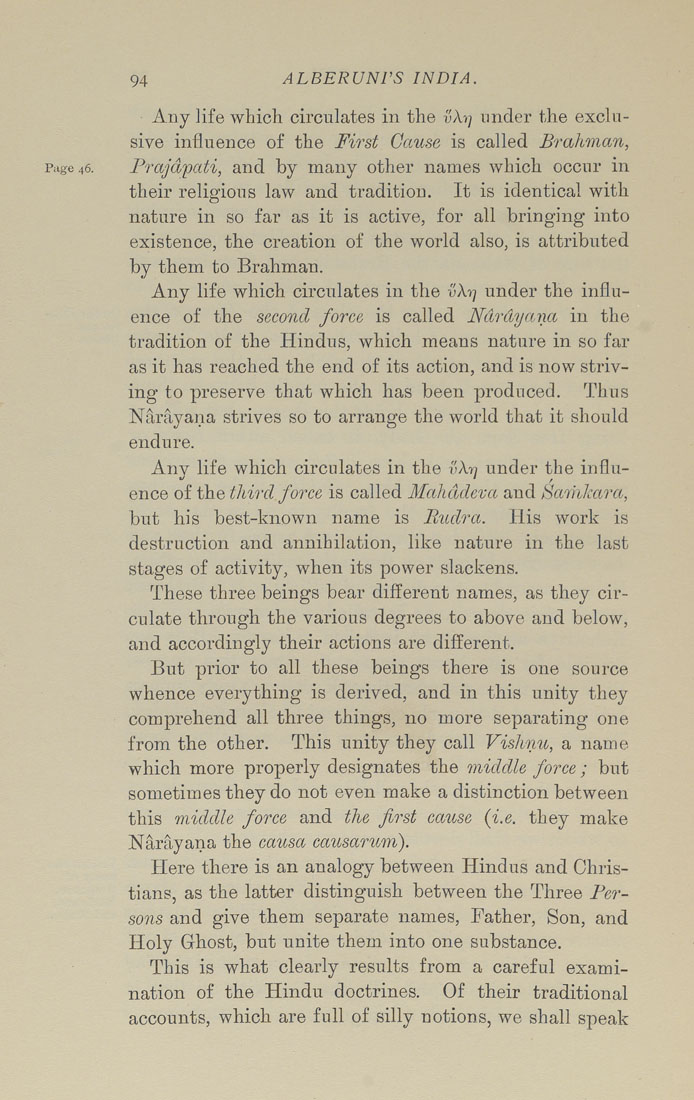Bīrūnī, Muḥammad ibn Aḥmad, Alberuni's India (v. 1)
(London : Kegan Paul, Trench, Trübner & Co., 1910.)
|
||
|
|
|
|
| Page 94 |

94 ALBERUNPS INDIA. Any life which circulates in the i'jXi-j under the exclu¬ sive influence of the First Cause is called Brahman, Prajapati, and by many other names which occur in their religious law and tradition. It is identical with nature in so far as it is active, for all bringing into existence, the creation of the world also, is attributed by them to Brahman. Any life which circulates in the iiX-)-] under the influ¬ ence of the second force is called Ndrdyana in the tradition of the Hindus, which means nature in so far as it has reached the end of its action, and is now striv¬ ing to preserve that which has been produced. P'hus Narayana strives so to arrange the world that it should endure. Any life which circulates in the vXtj under the influ¬ ence of the tliird force is called Mahddeva and Samkara, but his best-known name is Rudrct. His work is destruction and annihilation, like nature in the last stages of activity, when its power slackens. P'hese three beings bear different names, as they cir¬ culate through the various degrees to above and below, and accordingly their actions are different. But prior to all these beings there is one source whence everything is derived, and in this unity they comprehend all three things, no more separating one from the other. This unity they call Vishnu, a name which more properly designates the middle force ; but sometimes they do not even make a distinction between this middle force and the first cause (i.e. they make Narayana the causa causarum). Here there is an analogy between Hindus and Chris¬ tians, as the latter distinguish between the Three Per- sons and give them separate names. Father, Son, and Holy Ghost, but unite them into one substance. This is what clearly results from a careful exami¬ nation of the Hindu doctrines. Of their traditional accounts, which are full of silly notions, we shall speak |
| Page 94 |







